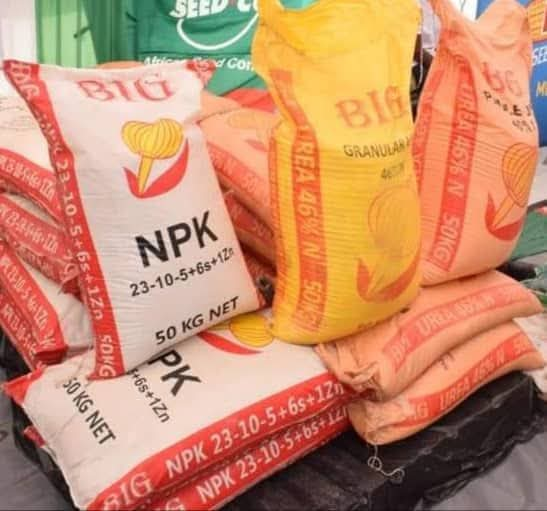By Suleman Chitera
The Farmers Union of Malawi (FUM) has sounded the alarm over the continued rise in fertilizer prices, describing the situation as a “disaster” that threatens farmers’ livelihoods, food security, and the national economy.
Currently, a 50-kilogramme bag of fertilizer is selling for over K150,000, a price most smallholder farmers in Malawi cannot afford.
Chief Executive Officer Jacob Nyirongo said the skyrocketing prices are simply unsustainable.
“Many farmers cannot afford these prices, they are just too high,” Nyirongo emphasized, adding that such conditions could lead to reduced crop yields and long-term threats to Malawi’s food security.
Impact on Food Security and the Economy
Agriculture remains the backbone of Malawi’s economy, with the majority of the population depending on farming for survival. The rising cost of inputs like fertilizer is expected to negatively affect maize production and other staple crops, potentially pushing more households into hunger and poverty.

Nyirongo warned that if urgent measures are not taken, Malawi could face a deepening food crisis that will also impact the broader economy, including trade and inflation.
Calls for Alternative Solutions
Agricultural expert Tamani Nkhono Mvula has also weighed in on the matter, urging farmers to adopt alternative soil fertility practices instead of relying solely on inorganic fertilizers.
He suggested techniques such as:
Composting and organic manure application
Crop rotation to naturally restore soil nutrients
Agroforestry practices that improve soil structure and fertility
Mvula noted that while inorganic fertilizers are effective, over-dependence on them in times of rising prices makes farming unsustainable for many Malawians.
Government and Stakeholders Under Pressure
The situation has placed pressure on the government and stakeholders in the agriculture sector to find immediate interventions. These may include fertilizer subsidies, support for organic farming methods, and policies that cushion farmers against global price shocks.
As Malawi moves closer to the planting season, farmers across the country are anxiously waiting for solutions that will make fertilizer more affordable and ensure a stable harvest.



